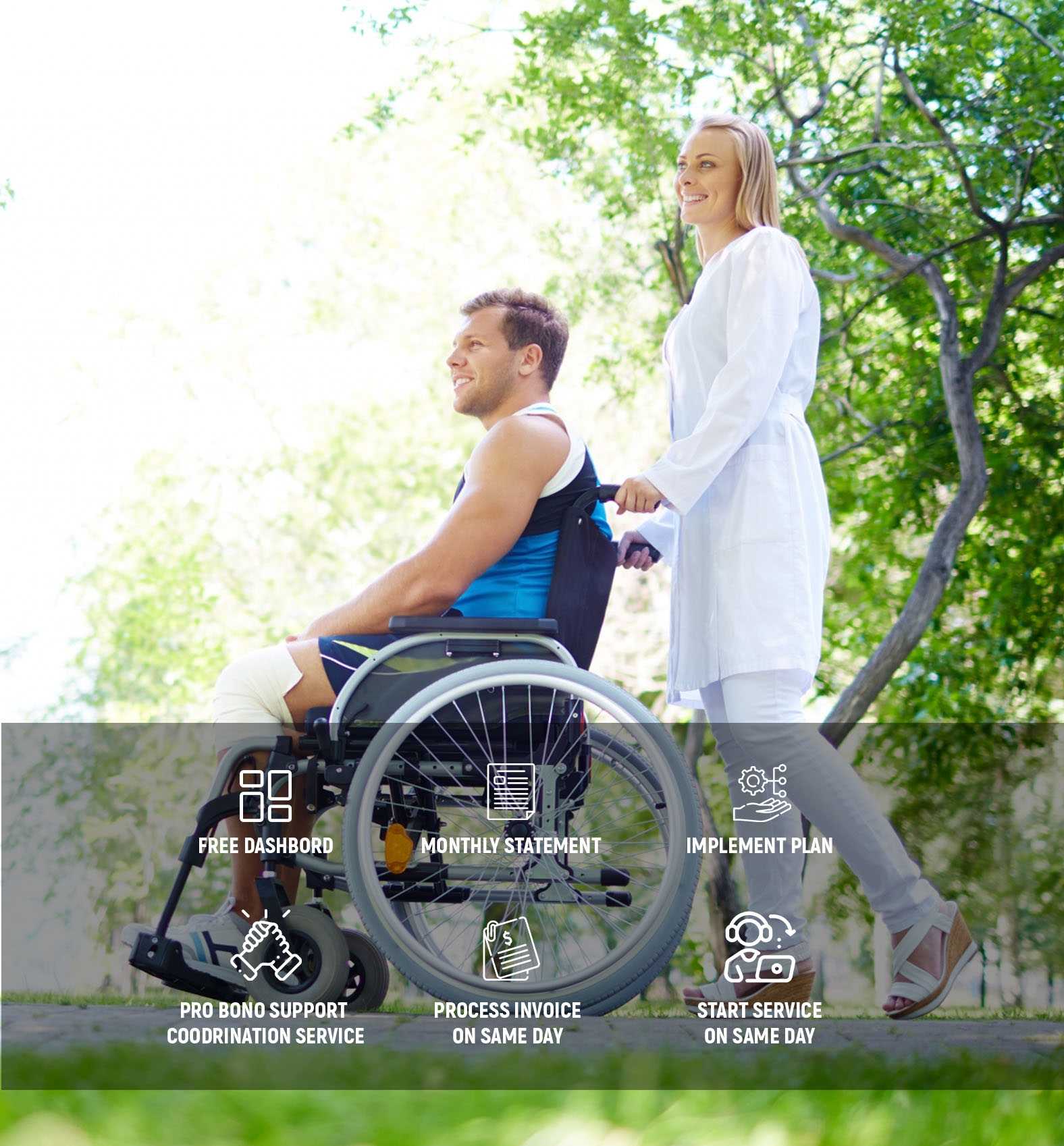Allied Health is a term you will come across quite a lot when you’re going through your National Disability Insurance Scheme (NDIS) journey, and you might be wondering what it means and how can they help?
On this page, we will go over what Allied Health is, what type of services they provide and how they might help you on your NDIS journey.
What is Allied Health?
Allied Health is the term used to refer to an extremely diverse range of health professionals that are not nurses or doctors. Allied Health Professionals provide essential services to people of all ages across all types of disciplines. Whether it’s mental health, disability care, speech, or physical therapy, hearing treatment, or rehabilitation (to name a few), an Allied Health Professional can help.
Allied Health Professionals work proactively to assess, diagnose, and treat individuals and are often part of a multidisciplinary team practice that works towards patients’ overall health and well-being.
You can find Allied Health Professionals in every branch of healthcare, and their roles within the NDIS are central to a participant’s journey.
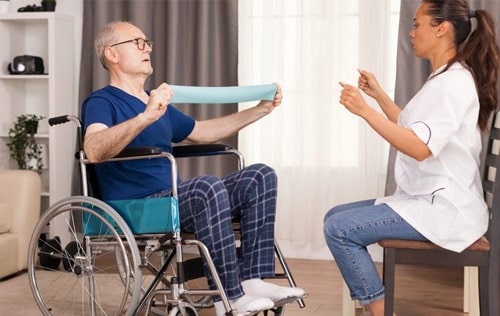
What is the role of Allied Health Professionals in the NDIS Journey?

To gain funding for Allied Health Professionals within your NDIS budget, it’s necessary to understand the roles that many of these services play and how they will help you reach your NDIS goals. As your NDIS funding is directly related to your goals, a participant or their guardian will need to have at least a basic understanding of the services available and their role in your NDIS journey.
The Different Types of Allied Health Professionals.
Occupational Therapist
An Occupational Therapist or OT is a vital support for many people who live with disabilities. An OT helps assess a person’s cognition, mobility, and capacity for daily chores such as eating, cleaning, dressing and cooking. Specialist Occupational Therapy practitioners can also provide extensive rehabilitation programs for neurological or physical disorders.
How do they help in your NDIS Journey?
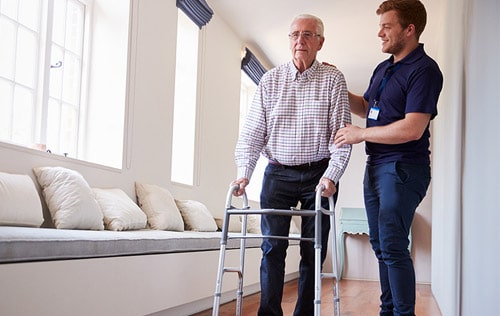
Speech Pathologist/Therapist
A speech pathologist or therapist is an Allied Health Professional who can assist NDIS participants with improving their speech through speech therapy and their communication. Communication isn’t just limited to how people talk but how people write, listen and read. A speech pathologist works with an extensive range of patients – from people who suffer from a cleft palate or a stutter right through to stroke patients or other brain injuries. They are also well-versed in developing a therapy for children who may be late bloomers, have a stutter from childhood, or lack confidence.
How do they help in your NDIS Journey?

Physiotherapy
Physiotherapy is one of the most well-known Allied Health Professions as it can help a wide range of ailments across many different disabilities. NDIS registered Physiotherapists are Allied Health Professionals who provide advice, treatment, courses and care to treat and maintain physical health and well-being. For people with disabilities, a physiotherapist can work towards rehabilitation, strength building, injury prevention and overall physical health techniques.
How do they help in your NDIS Journey?

Exercise Physiologist
A registered NDIS exercise physiologist is a health professional who helps individuals recover from a range of conditions. From injuries or physical impairments to enabling them to return to daily activities and improving their physical well-being. An exercise physiologist is not just about exercise science. Instead, they use the most current and best evidence-based strategies and treatments to help people recover from injuries or physical impairments and return to their previous fitness and functional abilities. Exercise physiologists also provide individualised care for people of all levels of movement function.
How do they help in your NDIS Journey?
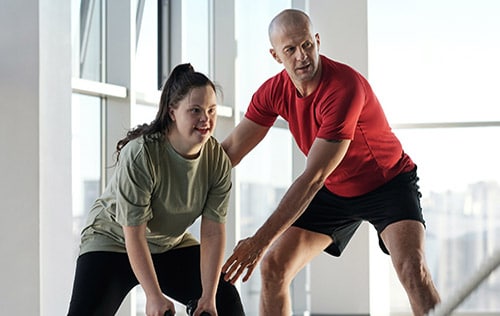
Psychologist
People who have developed mental health issues due to their disability may be eligible to work with a registered NDIS psychologist or a psychosocial counsellor. Their role within the NDIS space is to help people with disabilities to develop coping skills and build upon socialisation and confidence techniques. Psychological services are designed to target current mental health issues and identify potential risk factors that may contribute to a further decline in mental health. However, if the mental health disorder is not related to a disability in some way, other government mental health services outside the NDIS may be available.
How do they help in your NDIS Journey?

Osteopath
An osteopath registered with the NDIS treats individuals with diverse physical health concerns, including musculoskeletal and back pain and joint stiffness. Osteopathic manipulation uses the body’s own innate ability to heal itself through gentle, non-invasive treatment. For people who have a disability or an illness that makes it hard for them to move around, Osteopathy can help them adjust their bodies to have better mobility. An Osteopath takes a holistic planning approach to understand why a person body might be suffering from muscular disorders and delves deep into its root causes.
How do they help in your NDIS Journey?

Orthotist
An NDIS registered orthotist is an Allied Health Professional who specialises in making, fitting, and customising orthoses (prostheses) to support the body and enable more significant movement and freedom. Orthotics deals with all aspects of supporting the feet, ankles, legs, hips and back and work towards preventing injuries. Orthotics are dealt with in the field of orthopaedics and physical medicine. Orthotics are also closely related to human factors, ergonomics, and industrial design, all of which support people’s movement.
How do they help in your NDIS Journey?
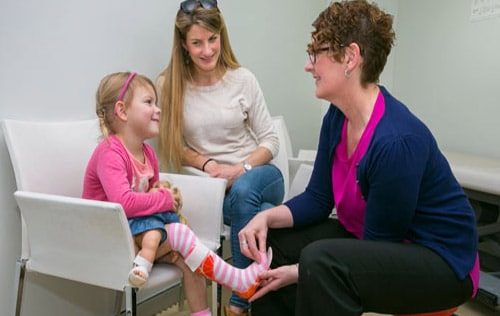
Arts Therapist
An NDIS registered art therapist provides creative, nonverbal means of presenting or interpreting life experience to facilitate the development or enrich life. They use art materials and other forms of creative expression (dance/movement, music, poetry) as the vehicle for communicating and expressing oneself. In terms of disability treatment, an art therapist may help someone improve their motor skills and coordination, develop focus, improve their confidence and self-esteem and even unblock repressed memories and break barriers for personal growth.
How do they help in Your NDIS Journey?
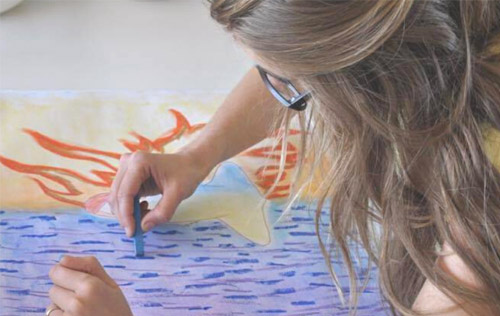
Podiatrist
Podiatry is the branch of medicine devoted to studying and treating foot, ankle, and lower leg injuries. Podiatrists work with individuals who have a variety of injury or amputation concerns and those with functional difficulties such as walking problems. An NDIS registered podiatrist will help the NDIS participant access the NDIS funded services they require. Podiatrists are trained in all aspects of foot and ankle surgery, including managing rheumatoid arthritis, wounds, and hypertension.
How do they help in Your NDIS Journey?

If you are unsure what kind of allied health professional might help you achieve your NDIS goals, speak to your primary carer or guardian, chat to your doctor, or ask your local area coordinator. For more information on the different types of Allied Health Professionals.

